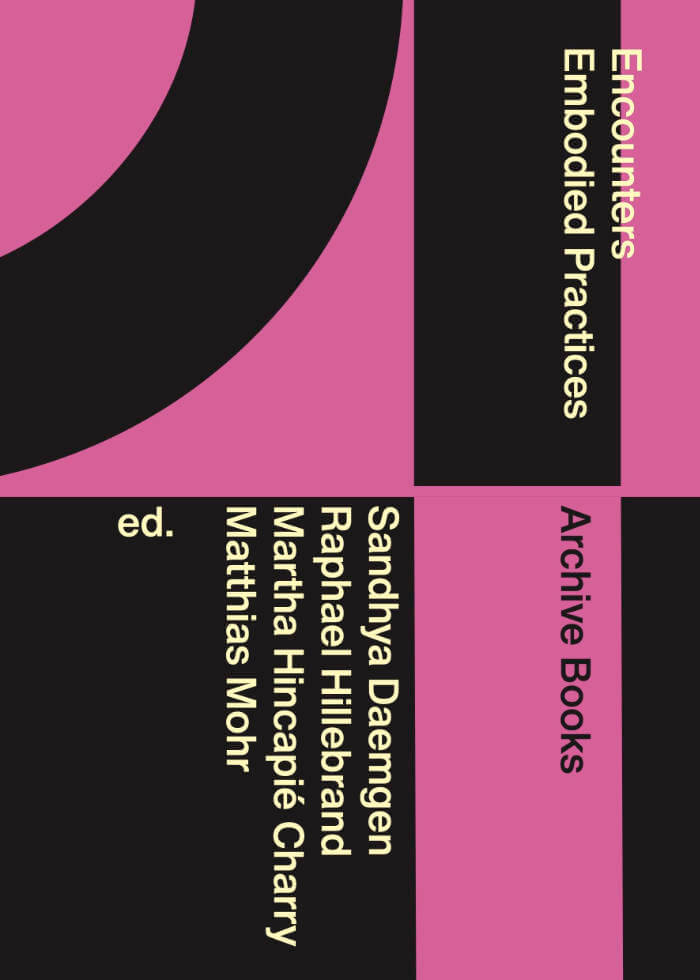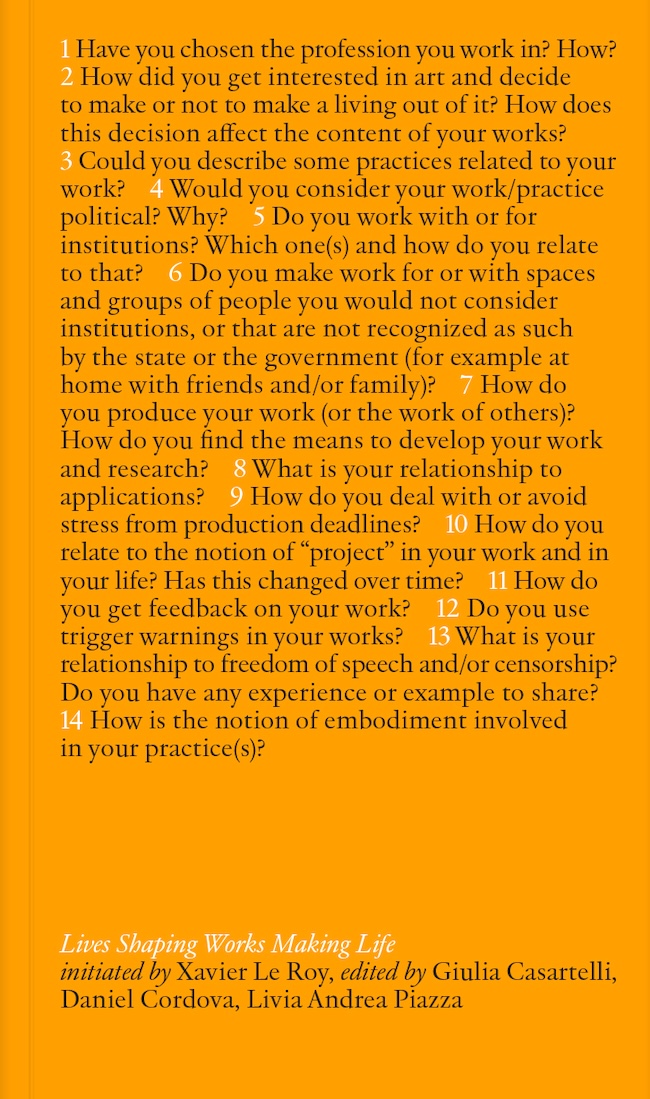
Encounters – Embodied Practices
Sandhya Daemgen ed., Raphael Hillebrandt ed., Martha Hincapié Charry ed., Matthias Mohr ed.
Conversations about embodied strategies of knowledge production and knowledge transmission based on the choreographic and curatorial practices of about fifteen international choreographers, performers, dramaturges and curators.
In the context of the numerous ethical-political challenges of the global present, actors from the dance and choreography scene both in Berlin and internationally talk about forms of knowledge production beyond the prevailing conception found in Western modernity. They counter the mind-body separation and the notion of a universality of knowledge with multiplicities of knowledge production that emerge with and from the reality of differently situated bodies.
What potential do embodied practices offer for emancipatory movements? How can community be created through these practices, and what responsibilities does this entail? What role does the body play in the preservation and transmission of knowledge?
In this publication, edited by the choreographers and curators Martha Hincapié Charry, Sandhya Daemgen, Raphael Moussa Hillebrand and Matthias Mohr; Lukas Avendaño, Wagner Carvalho, Sandhya Daemgen, Ismail Fayed, Alex Hennig, Raphael Moussa Hillebrand, Martha Hincapié Charry, Isabel Lewis, Matthias Mohr, Prince Ofori, Mother "Leo" Saint Laurent, Léna Szirmay-Kalos, Thiago Granato and July Weber conduct conversations about embodied strategies of knowledge production and knowledge transmission based on their respective choreographic and curatorial practices.







